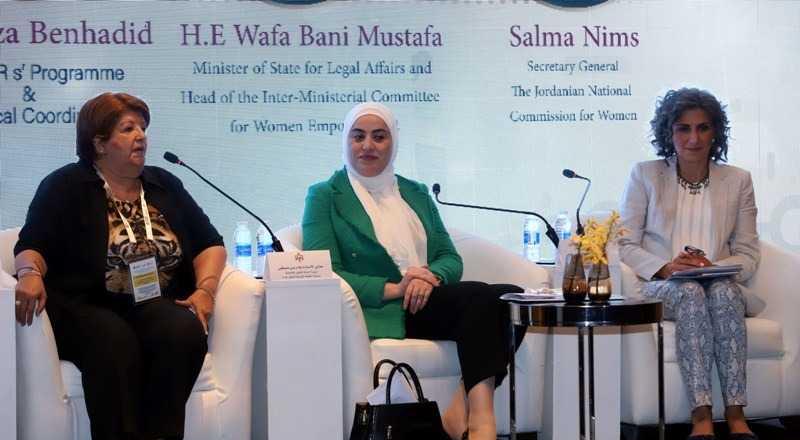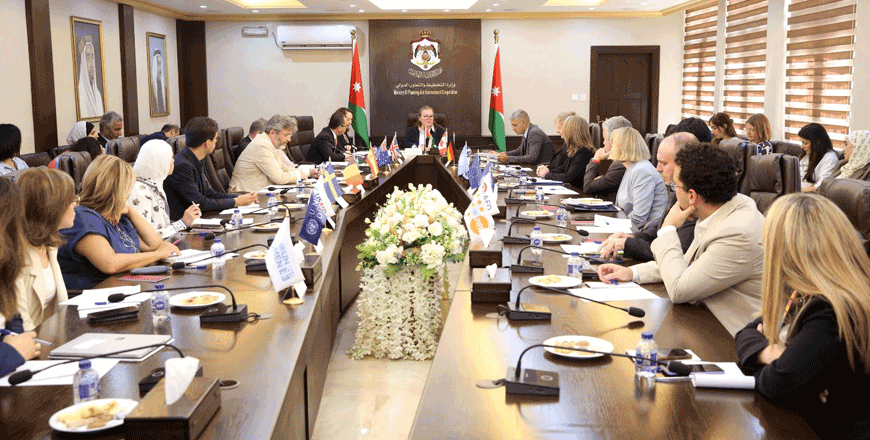You are here
JSF highlights women’s role in Economic Modernisation Vision
By Maria Weldali - Mar 02,2024 - Last updated at Mar 02,2024
AMMAN — The Jordan Strategy Forum (JSF) recently issued a policy brief that discusses the role of Jordanian women within the Economic Modernisation Vision. The brief reveals that the women’s empowerment initiatives outlined in the vision’s implementation programme have a direct and significant impact on empowering women in the Kingdom.
The brief also underscored the importance of including women in all aspects of life to ensure thriving economies. It also presented key facts and figures about the realities of women in the Middle East and North Africa (MENA) region, with a specific focus on Jordan.
One of the key findings, based on the 2022 World Bank database, is the male-dominated nature of the job market. Women’s participation in the MENA labour market stands at a mere 18.4 per cent, compared with men’s participation rate of 69.8 per cent.
The World Bank’s findings also show that 56.8 per cent of men and only 38 per cent of women in the MENA region have a bank account, indicating that men are "significantly" more likely to own businesses than women.
The brief also investigated the gender gap and other challenges that obstruct women’s representation in leadership roles, highlighting that women’s empowerment initiatives within the Economic Modernisation Vision directly impact women’s economic growth and empowerment by an estimated 72 per cent, with an indirect impact of around 28 per cent.
Among the main initiatives concerning women’s empowerment within the vision are the implementation of the Women’s Empowerment Strategy and the revision of environmental legislation related to women’s economic empowerment, the brief added.
Economist Waseem Hussein, commenting on JSF’s brief, told The Jordan Times that the fair inclusion of women in the labour market is a fundamental aspect of achieving sustainable economic growth. He also emphasised that the Economic Modernisation Vision would not be comprehensive unless women are included fairly and equally.
Hussein also said that women’s economic equality and empowerment contribute to a higher GDP, poverty eradication, and enhanced overall economic productivity.
Sociologist Hussein Khozahe said that promoting women’s economic inclusion through the Economic Modernisation Vision could lead to significant economic development and prosperity.
He also highlighted the need to address critical barriers that limit women’s meaningful inclusion in society and the economic sphere.
The brief concludes with a set of recommendations aimed at promoting women’s participation and economic empowerment.
Related Articles
AMMAN — Minister of State for Legal Affairs and Head of the Inter-Ministerial Committee for Women Empowerment Wafa Bani Mustafa stressed the
AMMAN — Women’s economic participation in the Kingdom remains sharply below male employment rates, according to the Jordan Strategy Forum (J
AMMAN — The Ministry of Planning and International Cooperation on Sunday hosted a donor coordination meeting to support the Jordan Women’s S



















